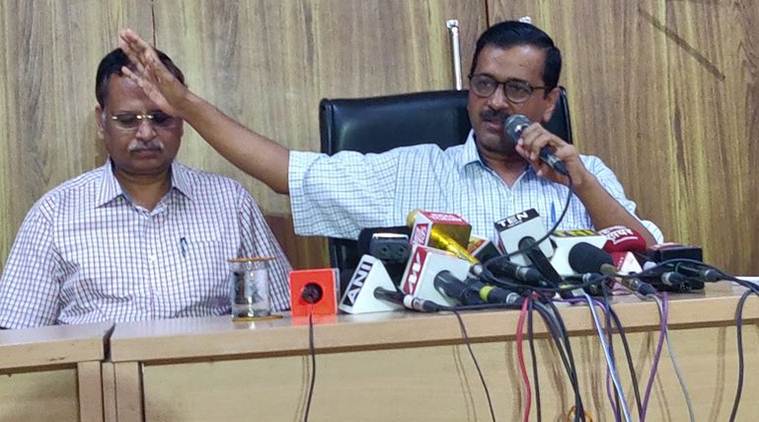Firms close to PM Modi to benefit from Electricity Act amendments, says Arvind Kejriwal
In a fresh salvo on the BJP-led government, Delhi Chief Minister Arvind Kejriwal on Saturday termed the draft amendment to the Electricity Act, 2003 “very dangerous”, saying the proposed changes were aimed at benefitting “the big power companies that are known to be close to Prime Minister Narendra Modi”.
Addressing the media at his residence in the national capital, the Delhi CM alleged that the draft amendment, which has been sent for review to all the states, would result in a steep hike in power tariff, thereby making it unaffordable for the middle class, let alone farmers and the poor.
“I will write to all the chief ministers and personally meet those from non-BJP-ruled states against the amendments that are very dangerous and draconian. This move is aimed at benefitting the big power companies that are known to be close to the prime minister,” the Aam Aadmi Party (AAP) chief said.
“Forward trading (in power sector) will mean the big people will gamble and the common people will have to bear the entire burden of generation, speculation, supply as well as the corruption of the power companies,” he added.
Accusing PM Modi of trying to “return back favours to the power companies” ahead of the Lok Sabha elections next year, Kejriwal said, “I am perplexed by the political rationale behind such a move that will hit a huge number of people, especially the poor and farmers. Maybe the Modi government has realised that it will not come back after the 2019 (Lok Sabha) polls and is trying to return back favours to the power companies.”
The CM also expressed fears that the amendments would “snatch away” the power of the state governments and bring all decision-making rights under the Centre’s domain.
Asserting that he would launch a movement against the amendment bill in order to stall its passage in the Rajya Sabha, Kejriwal said, “We will go to the people, telling them that Modi ji is sold to the power companies.” He added that the Centre planned to pass the bill in the coming Winter Session of Parliament.
Earlier this month, the Central government had proposed that if any state wanted to provide electricity subsidy to any category of consumer it “shall be through direct benefit transfer (DBT)” only.
States across the country give subsidised electricity to various categories of consumers — including farmers — and this is one of the primary reasons why many distribution companies across the country are in huge debt currently. If a consumer gets the subsidy directly in bank accounts under DBT, the Centre expects that the discoms would not accumulate more debt.


Comments are closed.